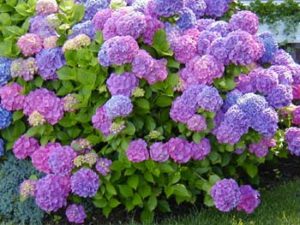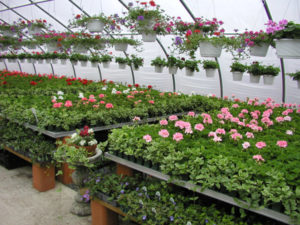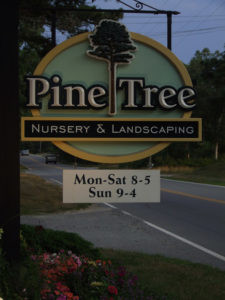Now that the weather is finally cooperating, it’s time to think about stretching that green thumb and creating a space in your yard that can be filled with a little natural beauty. But, if you’ve never gardened before and have no idea where to begin, have no fear. Finding ideas and information for a new garden is easier than you think.
According to Jeanie Gillis, manager of Pine Tree Nursery and Landscaping, in South Chatham, there are two primary things to consider before you plow into the dirt – time and money. “Time first, and money second,” she said. “Think about your life realistically. Plants do live and die, and they need time and care to flourish.”
If time is not always on your side, consider perennial varieties to grace your space. Perennials are plants and flowers that will pop up each year on their own after you first plant them, like lilies, coreopsis, black-eyes Susan, etc. Annuals, like geraniums, petunias, impatiens, etc., live for one growing season and then die, while perennials regrow every spring. Whichever you choose, let it be something you enjoy looking at.
For new homeowners, Gillis suggests they initially treat themselves to some annuals for that instant pop of color. “Pick one spot in the yard and make that area pretty to make yourself happy,” she said.
Gardening has long been plugged as a relaxing and stress-relieving activity. With most of the US population spending more time than ever before indoors and on sofas, gardening can be the perfect activity for both the mind and the body.
It can help lower your blood pressure, improve your mood, and can also provide physical exercise since it involves watering, weeding, trellising, mulching, etc. It can help reduce the risk of stroke, as well as the likelihood of osteoporosis. Heavy gardening can also burn a lot of calories reduce the risk of heart disease.
So, what do you want to plant first? “Start off with your favorites,” Gillis said. “What catches your eye? Take pictures of other yards and see what you like.” And ask questions, she advised. “Slow down and think about what you want. And speak to people who are passionate about plants. There are awesome resources here on the Cape.”
Gillis also said that, before you begin planting, you should visualize a no-plant zone one to two feet away from your house. Most plants don’t like to be crowded, she explained, but that’s not the only reason.
Planting too close to a house can create moisture problems, where excess water can damage the home’s foundation or damage its siding. Trees and shrubs too close to home can attract unwanted pests, like termites, as well. Additionally, having plants too close to the house can make weeding difficult.
Pine Tree Nursery and Landscaping, a family-run business, offers a wide variety of trees, flowering shrubs, evergreens, roses, and an extensive selection of perennials, all guaranteed to grow on Cape Cod. You’ll find native and seaside tolerant plants, Cape Cod roses and hydrangeas, and many unusual and interesting varieties to feature in a special garden.
There’s no time like the present to get dirty in your own garden. To learn more about what Pine Tree Nursery has to offer, as well as to get advice and information, visit www.pinetreenursery.com. They’re happy to help guide you on your new endeavor!
Sponsored Content



























